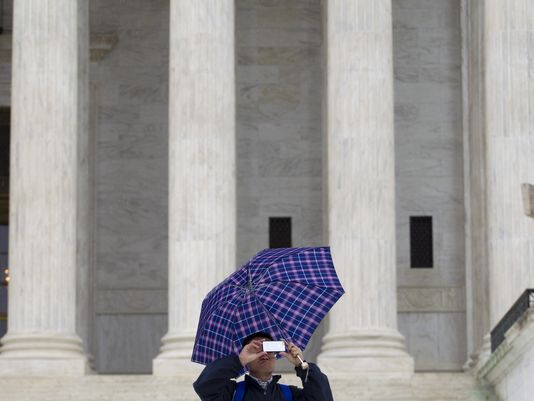
A visitor takes photos with his cellphone outside the Supreme Court in April, when the justices considered whether police may search cellphones during arrests. Cellphones and smartphones generally cannot be searched by police without a warrant during arrests, the Supreme Court ruled unanimously Wednesday in a major clash between privacy and technology.
Ruling on two cases from California and Massachusetts, the justices acknowledged both a right to privacy and a need to investigate crimes.
But they came down squarely on the side of privacy rights.
"We cannot deny that our decision today will have an impact on the ability of law enforcement to combat crime," Chief Justice John Roberts wrote for the court. "Privacy comes at a cost."
The court struck down an extensive smartphone search in California that had been upheld by the state Court of Appeals, as well as a more limited probe of an old flip-top cellphone in Massachusetts that a federal judge already had thrown out.
The result was a ruling that police cannot seek what they believe is relevant to the crime without getting a warrant.
Currently, police can search the person under arrest and whatever physical items are within reach to find weapons and preserve evidence.
The justices noted that vast amounts of sensitive data on modern smartphones raise new privacy concerns that differentiate them from other evidence.
They reserved for police the right to claim "exigent circumstances."
Source: usatoday.com
